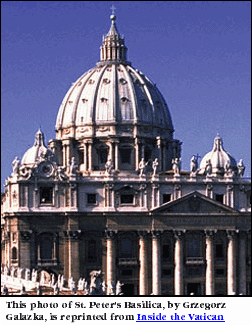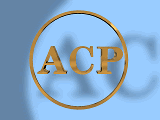American Catholic Press
16565 S. State Street, South Holland, Illinois 60473
|
||||||||||||||||||||||||
|
|
||||||||||||||||||||||||
|
Congregation for Worship The priest, while counted among the listeners to the Word of God, holds the duty of proclaiming the word which has been entrusted above all to him. "He then as a rule reserves to himself the tasks of composing comments to help the people listen more attentively and of preaching a homily that fosters in them a richer understanding of the Word of God" (Lectionary for Mass [LFM] 38). Thus he must have a thorough knowledge of the structure and interrelatedness of the readings at Mass (LFM 39). After listening to the opinions of the faithful, the priest makes a choice of the various options for the readings. He also nourishes the faithful by means of the homily. He directs the Prayer of the Faithful (at least by an introductory comment and a concluding prayer); when appropriate, the priest provides introductory comments for each of the readings (LFM 40). "Christ's word gathers the people of God as one and increases and sustains them" (LFM 44). The people of God have a "spiritual right" to hear this word. They are to cherish it with "an inward and outward reverence that will bring them continuous growth in the spiritual life and draw them more deeply into the mystery which is celebrated" (LFM 45). The sacred Scriptures are the source of life and strength, "the food of Christian life and the source of the prayer of the whole Church." Thus the faithful should be present for the entire Mass and should remain open to the word "not only during Mass but in their entire Christian life as well" (LFM 48). 
The Introduction suggests an order of precedence by recalling that the biblical readings are proclaimed by readers and the deacon. "But when there is no deacon or no other priest present, the priest celebrant is to read the Gospel and when there is no reader present, all the readings" (LFM 49). The Introduction also addresses the difference between instituted and noninstituted readers, recalling that "whenever there is more than one reading, it is better to assign the readings to different readers, if available." Psalmists or cantors of the Psalms should be drawn from those "with the ability to sing and read with correct diction" (LFM 56). Commentators may also provide "relevant explanations and comments that are clear, of marked sobriety, meticulously prepared, and as a rule written out and approved beforehand by the celebrant" (LFM 57). * * * |
|||||||||||||||||||||||
|
||||||||||||||||||||||||
